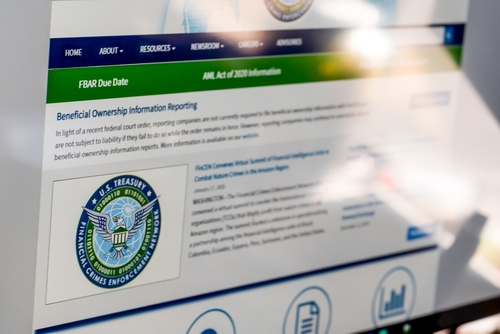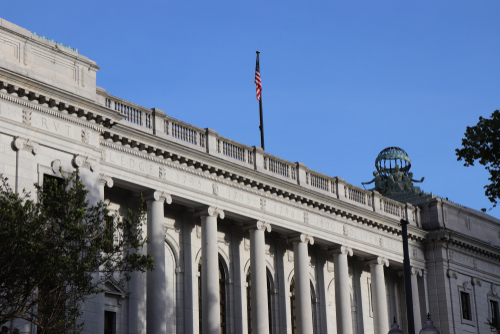
Dear Clients and Friends,
Over the third quarter of 2024, there have been many developments in global trade controls. We have compiled highlights of regulatory updates, publications, global and local enforcement events in the field of international trade regulation in the third quarter of 2024 that may affect compliance requirements for companies in Israel and abroad.
GLOBAL REGULATORY UPDATES | PROPOSED REGULATION | ENFORCEMENT-UPDATES
GLOBAL REGULATORY UPDATES
Continued focus on Preventing Diversion and Evasion
The U.S and ally countries continue to place increased emphasis on preventing evasion of their sanctions against Russia and Belarus:
- On July 10, 2024, BIS published guidance on its actions to identify diversion and mitigate diversion risks. The guidance contains recommended best practices for additional screening of parties to Common High Priority List (CHPL) exports, reexports, or transfers to prevent the diversion of EAR items to Russia through third countries. As part of the guidance, BIS notes the Trade Integrity Project (TIP) which has launched a website identifying entities that have shipped CHPL items to Russia.
- Israel’s Ministry of Economy and Industry issued further guidance regarding the effect US sanctions on Russia may have on Israeli exporters. The guidance calls attention to Chinese and UAE entities relevant to Israeli exports. The Ministry of Economy and Industry recommends for Israeli exporters to pay special attention to sanction updates regarding end-users in China, the UAE, Kyrgyzstan, Turkey, Moldova, and Singapore, as well as companies in the defense and energy sectors.
- Further to previous guidance, The US Department of the Treasury’s Office of Foreign Assets Control (OFAC) issued an alert to foreign jurisdictions and financial institutions warning of Russian sanctions evasion. The alert cautions dealings with “new overseas branches or subsidiaries of Russian financial institutions, including new branches or subsidiaries of Russian financial institutions that are not themselves sanctioned”. OFAC has indicated that these efforts by Russian financial institutions to open new branches or subsidiaries should be considered as a “red flag” for Russian sanction evasion. As the risk of violations continues to rise for foreign financial institutions, customers may expect further increased compliance requirements from their financial institutions.
- BIS has released guidance to exporters regarding language that may be included in contractual agreements to ensure that items are not reexported to Russia without a license, a recommended but optional equivalent to the EU’s “No re-export to Russia” clause. Lastly, BIS has updated their guidance on address screening, a measure BIS “strongly recommends… to comply with license requirements…and to monitor certain ‘red flags’ that require additional due diligence”.
- On September 24, 2024, the G7 released joint guidance on preventing evasion of export controls and sanctions levied against Russia. The guidance was also coordinated with the 39-member Global Export Control Coalition (GECC). The guidance contains, among other things, information about the common high priority list (CHPL), updated red flag indicators of potential evasion, best practices to address red flags, and suggested due diligence screening tools and resources. Compliance programs should reflect this guidance, which will be seen as the new standard for Russian sanction and export control compliance. Similar guidance has now also been released by BIS to financial institutions, who can be held liable for violating the U.S Export Administration Regulations for supporting transactions that violate U.S. export controls. Under the guidance, BIS has emphasized that items can be subject to U.S export controls even when no U.S. financial institution is involved, whether due to their U.S. origin, incorporation of more than de minimis U.S content or through production using U.S. technology or tools.
Council of the EU Renews Economic Sanctions against Russia:
On July 22, 2024, the Council of the EU renewed its restrictive measures targeting Russia for another 6 months. These measures include 14 sanctions packages against Russia and indicate a continuation of tightening the noose on business with Russia.
Expanded Sanctions against Belarus:
On August 5, 2024, the EU announced additional sanctions against individuals and entities from Belarus, continuing its measures in response to Belarus’s human rights violations and involvement in Russia’s war on Ukraine. Shortly thereafter, on August 9, 2024, the US Department of the Treasury’s Office of Foreign Assets Control (OFAC) issued further sanctions on Belarussian individuals and entities.
US Issues Further Restrictive Measures Aimed at Downgrading Russia’s Wartime Economy:
On August 23, 2024, the US Department of Treasury and State Department announced sanctions against an additional 400 individuals and entities. The measures highlight the US’s focus, among other things, on targeting those outside Russia assisting Russia’s war effort and sanctions evasion, including Chinese diversion of sensors, chips, ICs and related items to Russia. On the same day, the US Department of Commerce’s Bureau of Industry and Security (BIS) announced further measures intended to restrict the supply of US items to Russia and Belarus intended for the Russian war. The measures include expanding the scope of restricted Russian and Belarussian Military End Users and the Foreign Direct-Product rule to further target entities outside of Russia engaging in diversion to Russia, designating another 123 entities on the Entity list, and issuing guidance regarding foreign corporate service providers which may be used to hide restricted parties and facilitate diversion to embargoed destinations.
Further US Restrictions on Diamonds of Russian Origin:
In continuation of Executive Order 14068 previously restricting the importation of certain non-industrial Russian diamonds, as of September 1 2024, the prohibition has tightened from diamonds weighing 1.0 carat or greater to diamonds with a weight of .5 carats or greater. The prohibition also applies to Russian diamonds which have been substantially transformed into other products outside of Russia.
Increased Global Controls on Quantum Computing and other Advanced Technologies:
On September 5, 2024, the US Department of Commerce’s Bureau of Industry and Security (BIS) announced new controls related to quantum computing, semiconductor manufacturing, Gate All-Around Field-Effect Transistor (GAAFET) Technology, additive manufacturing items and other advanced technologies. In coordination with the US, The EU also announced similar new controls relating to these advanced technologies. In recognition of similar international efforts, BIS has issued license exceptions for export to countries with similar export controls.
US Sanctions Individuals and Entity associated with Intellexa Commercial Spyware Consortium:
On September 16, 2024, the Department of the Treasury’s Office of Foreign Assets Control (OFAC) announced sanctions against multiple individuals and an entity associated with Intellexa for their roles in developing, operating, and distributing commercial spyware that poses a significant threat to US national security; continuing previous sanctions the US placed against other Intellexa-associated individuals and entities, as well as the US’s prior actions taken against commercial spyware.
OFAC Anticipates 10-Year Record-Keeping Requirement in Accordance with Extended Statute of Limitations:
On April 24, 2024, OFAC’s statute of limitations for civil enforcement actions was extended from five years to ten years. On September 11, 2024, OFAC published for an inspection an Interim Final Rule, anticipated to be effective March 12, 2025, extending record-keeping requirements to 10-year in accordance with the lengthened statute of limitations.
BIS issues changes to its Voluntary Self-Disclosure and Penalty policies:
On September 12, 2024, the US Department of Commerce’s Bureau of Industry and Security (BIS) issued changes to its voluntary-self disclosure (VSD) practices and penalty guidelines. The changes seek to make VSD less burdensome, while also specifying that a deliberate decision not to disclose a significant violation would be considered an aggravating factor when determining administrative penalties.
US Department of Justice Issues Updated Corporate Compliance Program:
The US Department of Justice (DOJ) issued an updated version of its Evaluation of Corporate Compliance Program (ECCP) framework. The DOJ now requires companies to manage the risk associated with emerging technologies, including steps to mitigate risk of misuse of emerging technologies such as artificial intelligence (AI)
Anti-Boycott Compliance:
As boycotts of Israeli business rise, it is important to be mindful of compliance requirements with US antiboycott regulations. As per US export controls (§ 760 of the EAR), U.S. companies are prohibited from certain actions in “furtherance or support of a boycott maintained by a foreign country against a country friendly to the US”, primarily applicable to unsanctioned foreign boycotts against Israel. The prohibition includes not only the refusal to do business with a boycotted country, but also disallows providing information about an entity’s business relationships with boycotted countries and certain related certifications. As part of these prohibitions, US companies must report the receipt of boycott-related requests to the Office of Antiboycott Compliance (OAC), a division of the US Department of Commerce’s Bureau of Industry and Security (BIS).
Israeli Guidance on the Dual-Use Aspects of AI:
On July 3, 2024, Israel’s Ministry of Economy and Industry issued guidance regarding the potential dual-use aspects of AI. The guidance points to the potential military applications of AI which creates the need for controls and requires companies in the field to be aware of AI’s potential applications, referencing Israel’s 2023 policy on AI Regulations and Ethics. The Ministry of Economy and Industry calls on companies in the AI field to ensure responsible and secure use of the technology and to prevent exploitation of AI by malicious actors.
DECA Reminder on Registering Changes in Ownership:
On July 29, 20204 the Defense Export Control Agency (DECA) issued a reminder to defense exporters of their legal obligation to notify DECA of changes in their control. While DECA does not have a priori rights to approve or reject changes in ownership or control, such changes may be a factor in its licensing decisions.
Anticorruption Compliance for Defense Exporters:
On September 18, 2024, the head of Israel’s Ministry of Defense published a call to Israeli exporters to tighten their anticorruption compliance programs, among other things in keeping with updated local and international standards such as the most recent OCED antibribery compliance guidelines.
PROPOSED REGULATION
US Proposes Restriction on Support for Foreign Military, Intelligence, and Security Services and Controls to Protect National Security and Human Rights:
On July 25, 2024, the US Department of Commerce’s Bureau of Industry and Security (BIS) published proposed rules to heighten already existing restrictions on exports to military and military intelligence end users and end uses in countries of concern. Among other things, the proposed rules both expand restrictions on US persons’ support activities for restricted end-uses and end-users, as well as expand end-use and end-user controls to all EAR items when destined to the armed forces or national guard of countries subjected to a U.S. arms embargo, or civilian or military intelligence agencies of 45 countries of concern. The proposed restrictions also targets the export of certain facial recognition technologies that may be used for mass surveillance programs. Similar controls have also been proposed for military exports under the International Traffic in Arms Regulations (ITAR).
US Proposes Reporting Requirement for AI Developers and Cloud Providers:
On September 9, 2024, the US Department of Commerce’s Bureau of Industry and Security (BIS) released a notice of proposed rulemaking setting a mandatory reporting requirement for AI developers and cloud providers. The rule would require developers of powerful AI models and computing clusters to report various pieces of information pertaining to their ability to withstand cyberattack or exploitation and misuse by foreign adversaries or non-state actors.
US Proposes Prohibition of the Sale or Import of Chinese and Russian Connected Vehicles:
On September 23, 2024, the US Department of Commerce’s Bureau of Industry and Security (BIS) released a notice of proposed rulemaking that would prohibit the sale or import of connected vehicles which integrate certain hardware or software integrated in the Vehicle Connectivity System or Automated Driving System with a “sufficient nexus” to China or Russia. The restriction seeks to prevent malicious attempts to access and collect sensitive data or remotely operate American cars.
Planned reforms in Israeli export controls
At the beginning of 2024 , Israel’s Regulatory Authority published Israel’s planned regulatory reforms for 2024. Among the reforms noted were DECA’s plans to: (a) update the list of exempt export and marketing activities ,per applicable regulations further to Israel’s Defense Export Control Law (5766-2007) ; (b) update the list of items controlled under The Minister’s Order – Combat Equipment (2008) to more closely align the baseline for control with the updated Wassenaar Arrangement, while maintaining the right to control additional items; and (c) replace the Encryption Order with control of encryption exports based on the Wassenaar Arrangement, where DECA would be responsible for defense end-users and the Ministry of Economy for civilian end users. In addition, the Ministry of Economy published its intention to enact dual-use export control regulations more closely aligned with the control and enforcement standards of other Western countries. To date, the above plans have yet to result in updated regulations, other than the recently published draft regulation to revoke the Encryption Order. However, plans for 2025 must be submitted by December 1, 2024, and will be published by December 8, 2024. It remains to be seen in the 2025 plan whether there is an aim to implement the remaining planned reforms in 2025.
ENFORCEMENT UPDATES
US Imposes $5.8 Million Penalty against TE Connectivity Corporation for Shipment of Low-Level Electronics to Restricted Chinese Parties:
On August 15, 2024, the US Department of Commerce’s Bureau of Industry and Security (BIS) announced a $5.8 million penalty against TE Connectivity for the shipment of low-level EAR99 items tied to China’s hypersonics, UAV, and military electronics programs. The enforcement event highlights the US’s focus on smaller scale violations and low-level technology export violations.
US Reaches $200 Million Settlement with RTX for Export Violations:
On August 30, 2024, the US State Department announced a $200 million administrative settlement with RTX corporation (formerly Raytheon Technologies Corporation) to resolve hundreds of AECA and ITAR violations. Of significance in determining the penalty was RTX’s voluntary disclosures of violations.
US Imposes Penalty on Quantum Corporation for Alleged Israel Boycott Violations:
On September 30, 2024, the US Department of Commerce’s Bureau of Industry and Security (BIS), announced a penalty against a Californian company, Quantum Corporation, for 45 alleged violations of the EAR’s antiboycott provisions. Quantum received 45 requests from a UAE distributor to refrain from importing Israeli origin goods to the UAE when fulfilling purchase orders, and Quantum Corporation failed to report to BIS these request. Other examples of penalties for violations of US antiboycott provisions can be found in BIS’s publication “Don’t Let This Happen to You”.
This client update highlights certain developments in the field of international trade that can assist in meeting compliance requirements. It does not review all the updates that took effect in 2024 and is not intended to provide a comprehensive summary. This client update provides general information, and may not be relied upon in any particular situation without additional legal advice.











